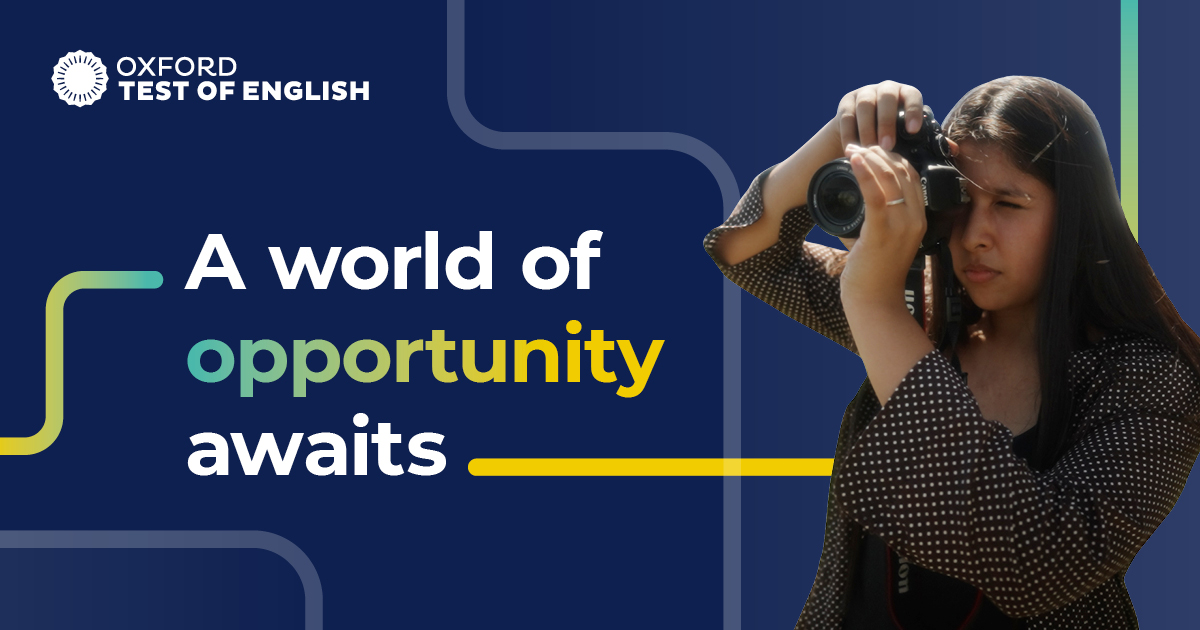How can English proficiency tests address the student skills gap?

In a survey of English language learners from around the world we found that, although primary motivations for learning and certifying their English skills are typically for education or employment opportunities, 56% told us that they are using their knowledge of English to take part in global topics and debates, demonstrating the importance of English proficiency beyond academic and professional contexts.
Additionally, we survey our communities of English language teachers, revealing a high level of interest and investment in learning and certifying English:
- 85% anticipate an increase in students seeking English certification over the next 12 months
- 88% say the importance of learning English in their country will also rise
- Over 90% of teachers recognize the significance of English to both students’ employment and their personal and professional development.
We are excited to announce the launch of our new Oxford Test of English Advanced, which will allow advanced English language learners to demonstrate their fluency at B2 to C1 levels of the Common European Framework of Reference (CEFR).
The new Advanced test differs from other English proficiency tests as it prepares test-takers for success at university or in their careers by assessing today’s language needs in real-life contexts, such as mediation, debating, and presentations.
Andrew Nye, Director of Assessment for our English Language Teaching division, said:
“Going to university is challenging enough—and that’s without the added challenge of being required to speak at an advanced level in your second language. We need to make sure that international students won’t be left behind because they haven’t had the opportunity to demonstrate certain skills that academic life expects of them, such as giving presentations or debating in English.”
“With the Oxford Test of English Advanced, our aim is to address this gap and give test-takers the confidence in their ability and in pursuit of their ambitions—not just when they get their results but whatever they choose to do next.”

Professor Paul C. Irwin Crookes, Director of Graduate Studies at the Oxford School of Global and Area Studies, said:
“It is vital that English language testing is sufficiently rigorous to ensure students get the most out of the course from the very start. The academic orientation of the Oxford Test of English and the way its activities combine skills will help ensure that international students are fully able to engage with our courses.”

What is the Oxford Test of English?
The Oxford Test of English is the only English proficiency test both certified and recognized by the University of Oxford, with the Advanced level gaining recognition for postgraduate admissions at the University.
The Oxford Test of English Advanced is:
- Convenient: the test is completely online and available all year round, providing flexibility for learners and fast results.
- Adaptive: the approximately two-hour, four-level test adapts to a student’s reading and listening levels, relieving pressure during what can be a stressful, life-altering experience and providing an accurate result of their English language proficiency
- Secure: unlike alternative tests, our English proficiency test does not use remote proctoring, but are taken under exam conditions and invigilated by trained invigilators at an Approved Test Centre.

Like the rest of our Oxford Test of English suite, the Advanced level puts learners first with reliable, accurate, and fair results that educational institutions and professional bodies can trust. It provides fast results in all four skill—speaking, listening, reading, and writing—that can be taken on their own, or in any combination.
Hear more from Santiago Ruiz de Velasco, Managing Director of our English Language Teaching division, on the path to fluency and how the Oxford Test of English will help learners on their own language-learning journeys.



